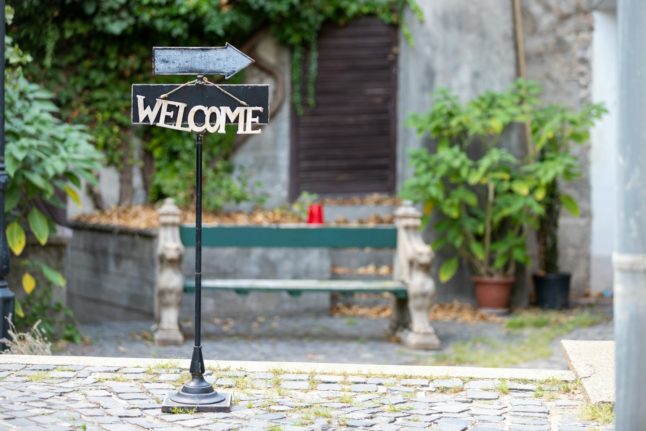The percentage of English-speakers in a number of cantons exceeds the proportion of users of other national languages.
This is the finding of a study published by the Federal Statistical Office (FSO) on March 18th.
In fact, this data from 2022 (the last available) shows that English is the most prevalent foreign language in Switzerland.
In French-speaking Geneva, for instance, 11.8 percent of the population speak English — more than 5.7 percent who speak Italian. And in the neighbouring Vaud, 9.1 percent of residents speak English, versus 4.9 percent for both German and French.
In Basel-City, where the main language is German, 12.5 percent speak English, 6.1 percent Italian, and 5 percent French.
And in Zurich,10.8 percent speak English, versus only 5.8 percent for Italian and 3.2 percent French.
The ‘ winner’ however, is the German-speaking Zug, where 14.1 percent of the population over the age of 15 has English as their primary language.
READ ALSO: The Swiss canton where English is spoken the most
A widespread trend
You may argue that all of these cantons are ‘ international,’ as they have the highest concentration of foreign residents, so the numbers of English speakers are proportionally high as well.
However, the FSO observed the same phenomenon in less ‘international’ regions as well.
In German-speaking Glarus, for example, 6 percent of the population speak English, and only 5.3 Italian.
In Nidwalden, these numbers are 6.6 percent for English, while only 2.7 percent speak Italian, and 2.2 percent French.
In all, the prevalence of English has been observed in 20 out of Switzerland’s 26 cantons.
Why has English become so widespread in Switzerland?
It is interesting that in a country that has four languages of its own, English is so popular — to the detriment of other national ones.
“The pace at which English is spreading is striking,” according to an article in Neue Zürcher Zeitung (NZZ).
While immigration certainly plays a role, there are other factors as well.
“More important are the dominance of English on social networks,” the newspaper said.
It quoted language scholar Marco Baschera, who pointed out that “English has penetrated deep into the intricate web of relationships between the four national languages…it is becoming a kind of common foreign national language.”
This is seen in many business and social settings.
For instance, if several people, each speaking one of the national languages, get together, they communicate with each other in English — a common denominator, so to speak.
Can you live in Switzerland with just English?
This has been a subject of some discussions within the international community.
In a survey, The Local readers shared their own experiences in this matter.
While most of the respondents said that it is possible under certain circumstances, learning a local language goes a long way towards integration within the society.
As one reader put it, “living in a big city makes it easier to get by with just English, and working in companies where the majority of employees are not Swiss and English is established as the working language” makes it possible.
“Having said that, I think that you just ‘get by’. You probably cannot experience the country in its fullest, and cannot feel integrated, in order to be able, at some point in the future, to call this place ‘home’ (if this is of course your goal).”
READ ALSO: Can you get by in Switzerland with just English?
‘I can English understand’
While a sizeable proportion of Switzerland’s population is proficient in English, not all high-ranking members of the government are.
This had become clear (and embarrassing) on two occasions in recent years.
In 2015, Economy Minister Guy Parmelin, who hails from French-speaking Vaud, said during a press conference, “I can English understand but…”, before switching to his native tongue to add, “I prefer responding in French to be more precise.”
Even the New York Times reported on this.
Then, in 2019, the then president Ueli Maurer, went to visit US president Donald Trump. In Washington.
As NZZ described this event, Maurer’s subsequent appearance on CNN “remains unforgettable. Maurer’s head of communications had to translate the moderator’s questions into Swiss German and convey Maurer’s answers to the moderator. Maurer stumbled and stammered, although he hardly had anything substantive to say. His statement at the end of the interview is legendary: ‘I can nothing say to this issue’.”



 Please whitelist us to continue reading.
Please whitelist us to continue reading.
Member comments